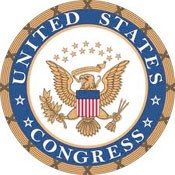Obama's order aims to fight cybercrime
WASHINGTON, USA: President Barack Obama's executive aimed at increasing protection of critical infrastructure in the US from cyber-attacks addresses only a small portion of threats faced by companies and sets up a fresh battle in Congress over the legislation.

Obama acted this week after two failed attempts in Congress to pass measures to protect critical infrastructure but administration officials and lawmakers acknowledge that the order creates no new authority even though legislation is needed to safeguard power grids, banks and air traffic controls from cyber-attacks.
"The executive order is not a substitute for legislation," said General Keith Alexander, head of the National Security Agency and the military's Cyber Command.
"We need legislation and we need it now," Alexander told a group on Wednesday (13 February) when they met to discuss the president's order. "From my perspective, the threats are real and growing," he said.
Because most of the networks in question are in private hands, officials say they must rely on voluntary reporting of any cyber-threats or attacks. Legislation would be needed to shield businesses from liability when they do report potential malicious software threats.
Obama, in his annual State of the Union address to a joint session of Congress, said the United States was facing a "rapidly growing threat from cyber-attacks."
The president urged Congress to pass legislation that would give government greater capacity to secure networks.
Senator Jay Rockefeller, co-author of a pending Cyber-security Bill, welcomed the executive order and said it "will improve the partnership between the government and the private sector."
But other lawmakers were miffed that the president acted alone. Without incentives from legislation, the order "will be ineffective and carry consequences for entities that choose to participate," said the homeland security committee chairman Michael McCaul.
"We are in a cyber-war now and most Americans don't know it," Rogers told a forum.
"And at this point, we're losing. Nations like China are stealing our intellectual property at a breathtaking pace," said Democrat Dutch Ruppersberger. He said he was optimistic about the Cyber-security Bill's chances of being passed despite its failure last year.
Cyber-security legislative efforts failed amid opposition from civil libertarians who claim it could allow too much government snooping and create a new bureaucracy.
Leslie Harris at the Centre for Democracy and Technology said: "The legislation remains fundamentally flawed because it allows private Internet communications and the information of American citizens, to go directly to the NSA, a military intelligence agency that operates secretly with little public accountability."
Source: AFP via I-Net Bridge